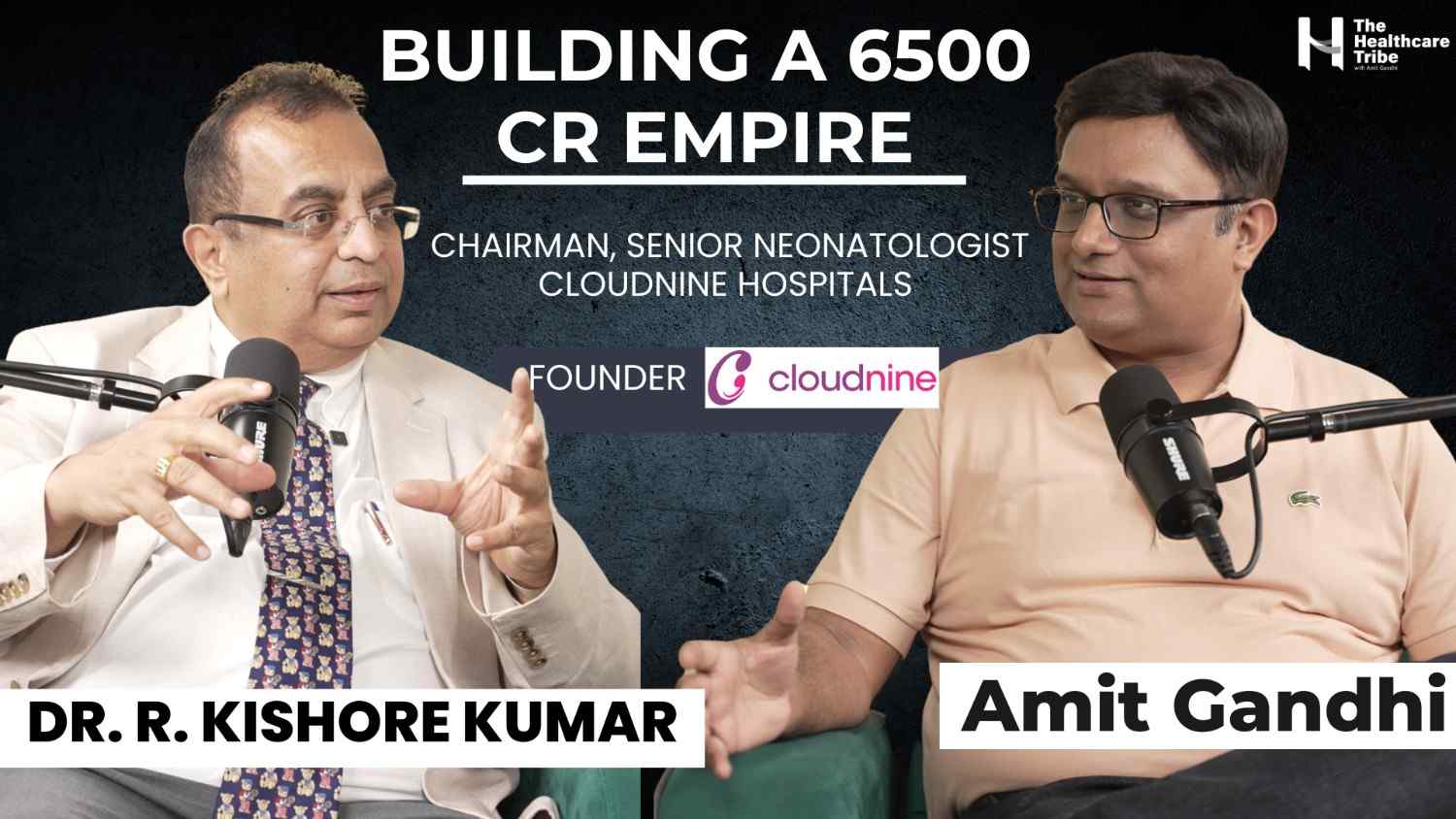Beyond the Paradox: Business Lessons from Cloudnine on Revolutionizing India's Pediatric Healthcare Market

India's healthcare landscape presents a striking paradox. While metropolitan cities boast neonatal intensive care units (NICUs) on par with the West, the quality of care often plummets just a few kilometers away. This dual reality of world-class treatment and systemic gaps is a central theme of The Insight Tribe's podcast with Dr. R. Kishore Kumar, Founder of Cloudnine Hospitals, hosted by Amit Gandhi.
"India is a rich country with poor administration. Urban neonatal care is on par with the West, but rural India still struggles with preventable deaths," Dr. Kumar emphasizes.
This blog distills key insights from their discussion, charting a path for the future of pediatric care and offering business lessons for aspiring healthcare entrepreneurs.
You can listen to the full podcast here:
https://www.youtube.com/watch?v=svoPpRR3JL0
The Parenthood "License": Beyond Biology
Becoming a parent is one of life’s most profound decisions, yet it’s often taken for granted. Dr. Kumar suggests a radical idea: a "license" for parenthood.
"We need a license to drive a car, but not to become a parent. Parenthood demands preparation."
This preparation includes:
- Healthy Lifestyle: Both parents' health directly affects sperm and egg quality. Poor habits like smoking and junk food consumption can contribute to infertility and health issues in the child.
- Balanced Nutrition: Maternal nutrition determines a child's future health. A balanced diet prevents gestational diabetes and hypothyroidism, which affect a significant number of pregnant women in India.
- Time & Screen-Free Childhood: Dr. Kumar highlights the link between early screen time and developmental issues like selective mutism. Pediatric academies worldwide recommend no screen time for children under three.
India's Evolving Pediatric Landscape
India has made significant strides in reducing infant and neonatal mortality, but challenges remain. While the Infant Mortality Rate (IMR) dropped from 39 to 28 per 1000 live births between 2014 and 2020, disparity is rampant. States with strong political will, like Kerala and Tamil Nadu, have achieved single-digit mortality rates on par with the West.
The Pediatric Healthcare Market is growing, projected to reach USD 654.2 Million by 2033, yet this growth is largely concentrated in urban centers. This is a business opportunity for entrepreneurs who can build sustainable models.
Common issues today include:
- Rising C-section Rates: These vary wildly from 20% to 70% in some centers, often driven by misconceptions rather than medical necessity.
- The IVF Boom: In cities like Bangalore, 10-15% of pregnancies are IVF-conceived, a huge increase. This is primarily a result of lifestyle factors, including late marriages and reduced sexual frequency. As Amit Gandhi notes, some cases can be solved with simpler lifestyle interventions.
- Preterm Births: India’s preterm birth rate is 10-15%, and 3.34 million babies are born too soon each year. Dr. Kumar explains the specialized care required for extreme preterm babies, a skill that was rare in India decades ago but is now a cornerstone of Cloudnine's success, which saves babies as small as 400 grams.
The Cloudnine Model: Business Insights for Healthcare Entrepreneurs
Cloudnine's success comes from its revolutionary premise: "Pregnancy is not an illness. It is wellness."
This single-specialty focus on "wellness" is a key business lesson for other healthcare providers. Dr. Kumar's journey from a single center to a 6,500 crore valuation offers clear strategic takeaways:
Clinical Excellence Drives Profitability: Dr Kumar mentions that Cloudnine’s business model is built on superior patient outcomes, with 0% maternal morbidity and mortality rates on par with developed nations. This focus on quality reduces complications, shortens hospital stays, and builds an invaluable brand reputation that attracts private equity and patient loyalty.
Leverage Technology for Efficiency: Investments in technology like AI and modern equipment directly improve the bottom line. AI predicting sepsis 72 hours in advance allows for early intervention, and LED phototherapy units reduce hospital stays for jaundiced babies by one day. These efficiencies cut costs and enhance patient safety.
Adopt a Scalable, Hub-and-Spoke Model: Cloudnine's expansion into Tier 2 cities like Ludhiana and Lucknow proves that quality, affordable care can be scaled. By having smaller local centers and referring complex cases to a central, full-service facility, this model manages high capital investment costs while expanding market reach.
Diversify Your Revenue Streams: While birthing services are the core, Dr Kumar shares that Cloudnine has created new revenue streams through value-added services like home care, virtual consultations, and wellness programs. This taps into the growing pediatric home healthcare market, projected to reach $2.2 billion by 2030.
Opportunities and Unmet Needs
Despite progress, significant gaps remain:
- Special Needs Care: This area is severely underserved, with a lack of trained professionals for conditions like autism and ADHD. The INCLEN study estimates 7.5% to 18.5% of Indian children suffer from a neurodevelopmental disorder.
- Outpatient & Preventive Care: Many clinics fail to perform critical newborn screenings, missing preventable conditions like congenital hypothyroidism. Cloudnine's screening program has saved 500 babies from mental retardation in 18 years, a powerful example of what proactive care can achieve.
The future of pediatric care in India hinges on parents making informed choices, entrepreneurs building scalable models, and policymakers ensuring equitable access. As Dr. Kumar concludes: "Parenthood is a responsibility. And pediatric care is not a luxury—it’s the foundation of a nation’s health."


